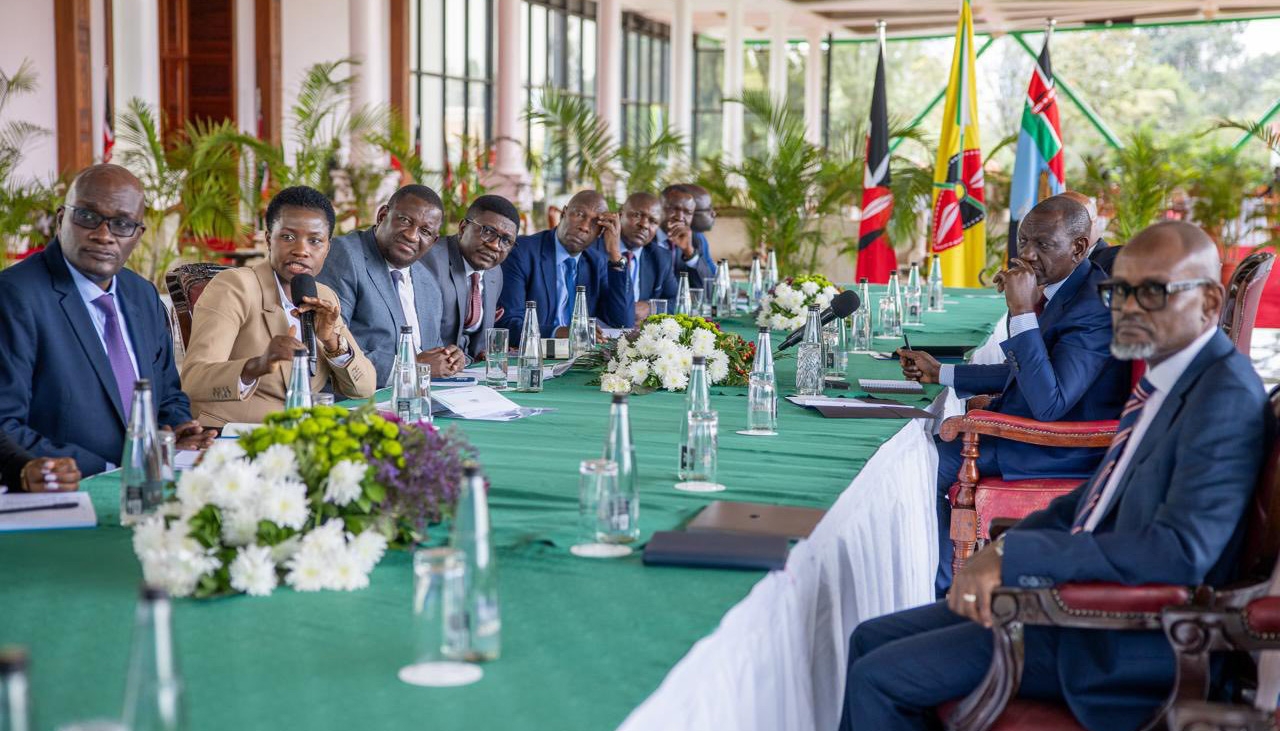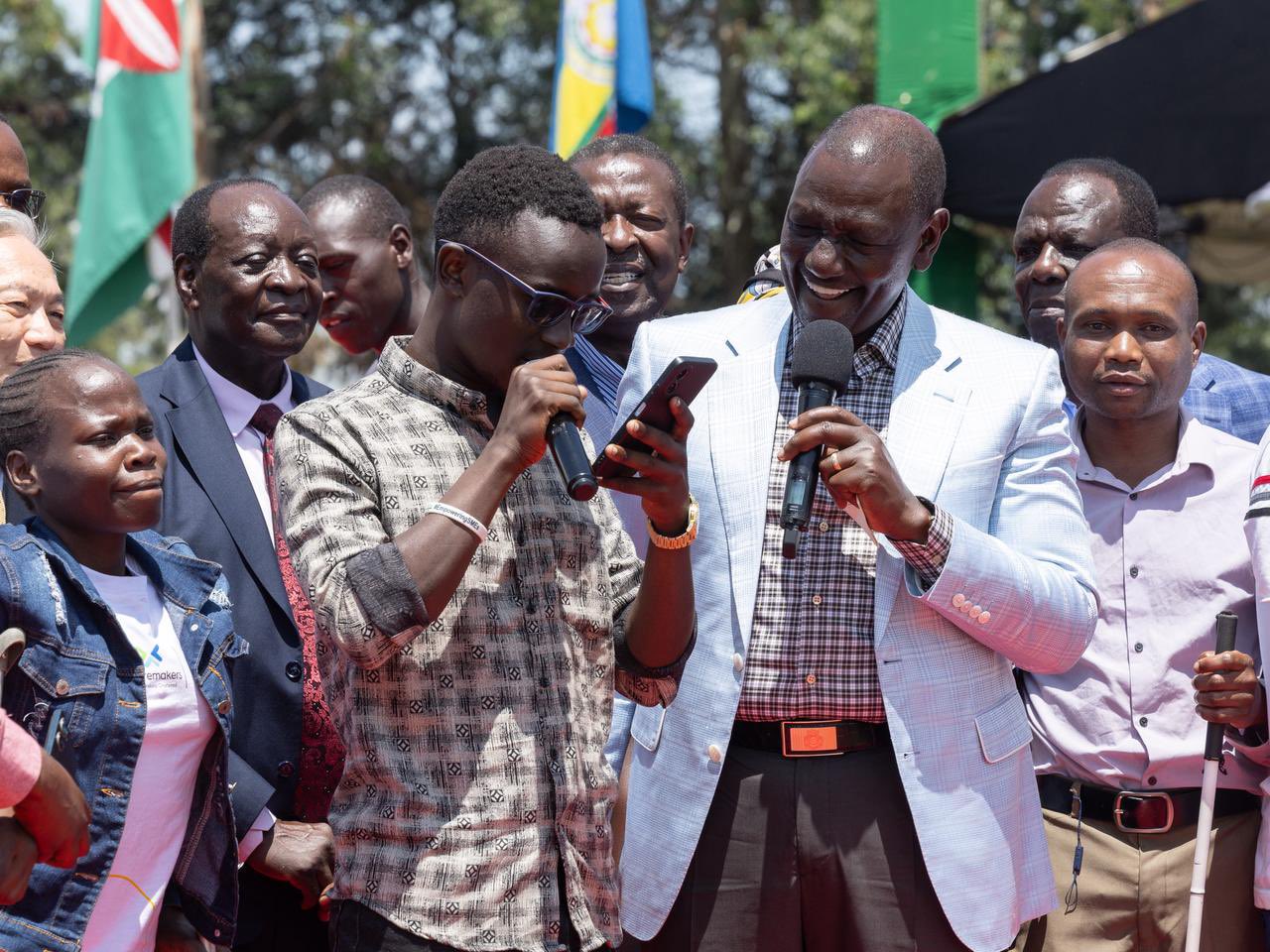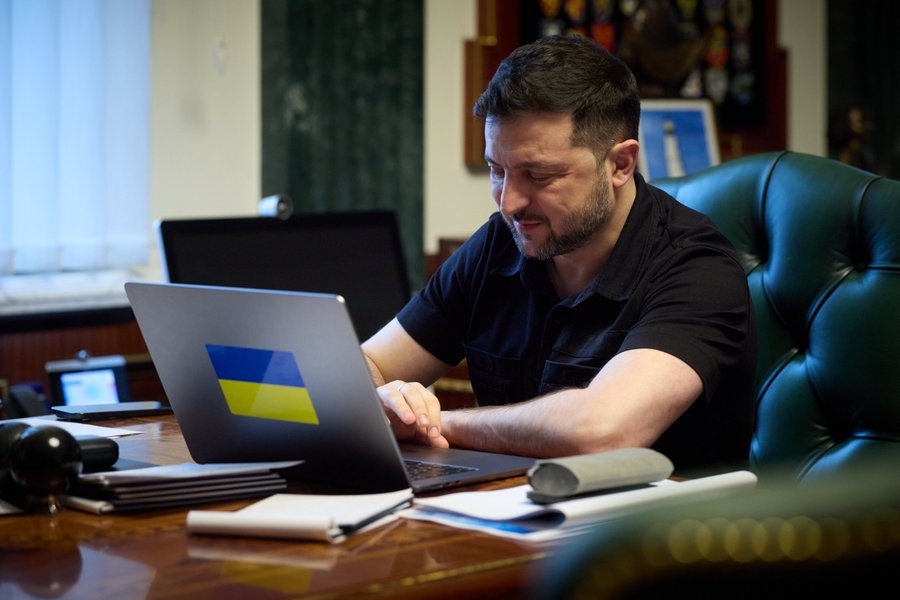
 President William Ruto with some of the beneficiaries during the launch of NYOTA in Kakamega on November 7, 2025. /PCS
President William Ruto with some of the beneficiaries during the launch of NYOTA in Kakamega on November 7, 2025. /PCSPresident William Ruto has directed all Members of Parliament to ensure that at least one Information, Communication and Technology hub is established in every ward in their respective constituencies.
Speaking on Friday in Kakamega county during the launch of the Nyota programme, Ruto said the initiative is part of his administration’s plan to expand Kenya’s digital infrastructure, create employment for young people and promote innovation and e-commerce.
He said the government is investing heavily in technology to make digital opportunities accessible to youth in every part of the country.
"We have asked every Member of Parliament to build at least one ICT hub in every ward because we want to equip those hubs and enable between 200 and 300 young people to access digital jobs, e-commerce and other online opportunities,” the President said.
He added that the government is in the process of rolling out 100,000 kilometers of fiber optic cable across Kenya to support internet connectivity.
Ruto noted that 30,000 kilometers have already been completed, forming part of the country’s effort to expand digital access and bridge the connectivity gap between rural and urban areas.
“Technology democratises opportunity,” he said, emphasising that access to the digital economy will allow young people to contribute meaningfully to national development.
The President explained that the ICT hubs will be equipped with computers, reliable internet and workspaces where youth can take part in digital freelancing, online business, innovation and software development.
He said the government expects each hub to serve between 200 and 300 youth, offering training and access to platforms that support remote work.
The hubs are also expected to link young entrepreneurs to global markets and e-commerce platforms.
Ruto’s directive aligns with the Kenya Kwanza administration’s Digital Superhighway and Creative Economy pillar under the Bottom-Up Economic Transformation Agenda (BETA).
The initiative aims to position Kenya as a regional digital powerhouse while addressing unemployment and underemployment among the youth.
The plan will be implemented in partnership with MPs, the Ministry of ICT, the Ministry of Youth Affairs and the private sector.
Legislators are expected to allocate resources for the construction of the hubs through the National Government-Constituency Development Fund (NG-CDF).
Several constituencies have already piloted similar projects, with digital innovation centers providing training in coding, graphic design, online writing and digital marketing.
Ruto said the government will continue to invest in programmes that empower young people through technology, adding that digital transformation remains central to Kenya’s economic agenda.
“We want every young person, regardless of where they live, to have equal access to digital opportunities,” Ruto said.
“That is how we will grow our economy inclusively.”
The Ministry of ICT and the Digital Economy has previously rolled out related initiatives such as Ajira Digital and Jitume, both aimed at preparing youth for global online job markets.
Under the Ajira Digital programme, thousands of young Kenyans have received training to access freelance and remote work opportunities online.
Jitume programme, launched in partnership with the Ministry of Education and ICT, has on the other hand provided digital access points and training labs in TVET institutions and universities.
















